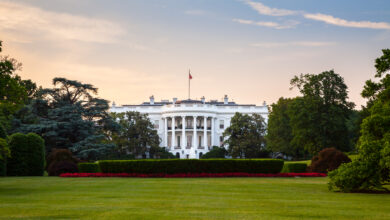A License to Kill: The Khashoggi Case and the Coming Crisis It Will Trigger

It is easy to dehumanize what happens in the news. Events that are reported quickly trigger subsequent reactions and are subsumed into broader discussions about politics or the foreign affairs or economics and the underlying stories are lost. The case of Jamal Khashoggi, the Washington Post reporter who was, it appears, brutally murdered at the hands of the government of Saudi Arabia, is one such story. But we should not lose sight of the suffering involved for Khashoggi, for his fiancé, for his friends and colleagues, and for all others who have met similar fates thanks to the desire of a few men to cling to their offices and the riches and prerogatives they offer.
Few single incidents in recent memory so horrifically capture the sheer evil associated with this kind of abuse of power. But daily countless others take place worldwide.
If that is so, why then are we so shocked by this one. Well, in part it is because the act was so brazen. The leaders of a foreign government, ostensibly an ally of the United States, one particularly close to the President of the United States and his family, decided to murder a man who was not only a permanent resident of the United States but who also was a columnist for the leading newspaper in America’s capital city. He was not simply going to disappear unnoticed as do many such victims of the Saudis.
Yet, for some reason, the men who gave the order to kill Khashoggi felt they could do so without too seriously damaging their relationship with the United States. They felt they could kill a prominent and well-respected voice in the U.S. and international media and not immediately lose the support of their most important ally.
What made them think that? Was it the warmth with which President Trump and his emissaries including son-in-law Jared Kushner embraced them? Was it that Trump had not challenged in a meaningful way their other depredations and crack-downs? Was it that he had soft-peddled criticisms of the Russians for their extra-territorial murders? Was it that Trump had repeatedly called members of the press “enemies of the people” and joked about it publicly with other foreign leaders who shared his contempt for free expression?
Or was it something more explicit? Did the Saudis give the U.S. a heads up that things were about to get ugly? Such a suggestion is pure speculation. But two things are certain: First, for some reason, the leaders of a close U.S. ally felt they had a license to kill from the U.S. president. (They were not only confident that their brutality would not produce tough repercussions but so far, the president’s arm’s length, tepid reaction to the killing suggests they were right as far as the White House response is concerned.) Second, the Saudis gravely miscalculated.
Because the United States, despite all the best efforts of Donald Trump and his family to offer appearances to the contrary, is not a monarchy. And not ever senior official in the U.S. with responsibility for foreign policy is as amoral as our commander-in-chief. While he may shock us all with his blunt rejection of getting tough with the Saudis in the wake of this crime because he so highly values the commercial benefits of selling them more arms, others are already stepping up. Senator Bob Corker, who chairs the Senate Foreign Relations Committee, and a bi-partisan group of Senators sent a strong message to this effect with a letter triggering a Magnitsky Act investigation into the killing—one which could result in serious sanctions against the Saudis.
But that is the tip of the iceberg. Should Democrats win control of either the House or the Senate on November 6, one of the first countries to feel the consequences of the change of control will be the Saudis. There will almost certainly be investigations on several levels into this case. One will no doubt take on the classic form of “what did the White House know and when did they know it” inquiries into who received intelligence about the murder beforehand and immediately afterwards and how did they handle it. It is hard to imagine that such a newly constituted Congress would not go further and look more deeply into the president’s financial ties to the Saudis, the ties of his company and family, and how that might have influenced his behavior. In fact, the Saudis can now expect that after the Russians, they will be number two on the target list for international Congressional investigations…and for actions to penalize their behavior.
Given the complexities of the Middle East, the Saudi’s centrality to one of this administration’s main areas of international focus, relations with Iran, and the tensions that exist currently within Saudi Arabia, this could become very fraught, very fast and one of the biggest challenges the Trump Administration will face between now and their re-election campaign in 2020. Through all that, it will be easy to forget that this is not all about money and power and politics but that it started with a man and a moment of horror that is almost impossible to imagine.
But we should try to imagine. Because only in so doing do we get a clear picture of the depravity of the men who are responsible for this crime as well as those who may have sanctioned it or sought to minimize its consequences.




